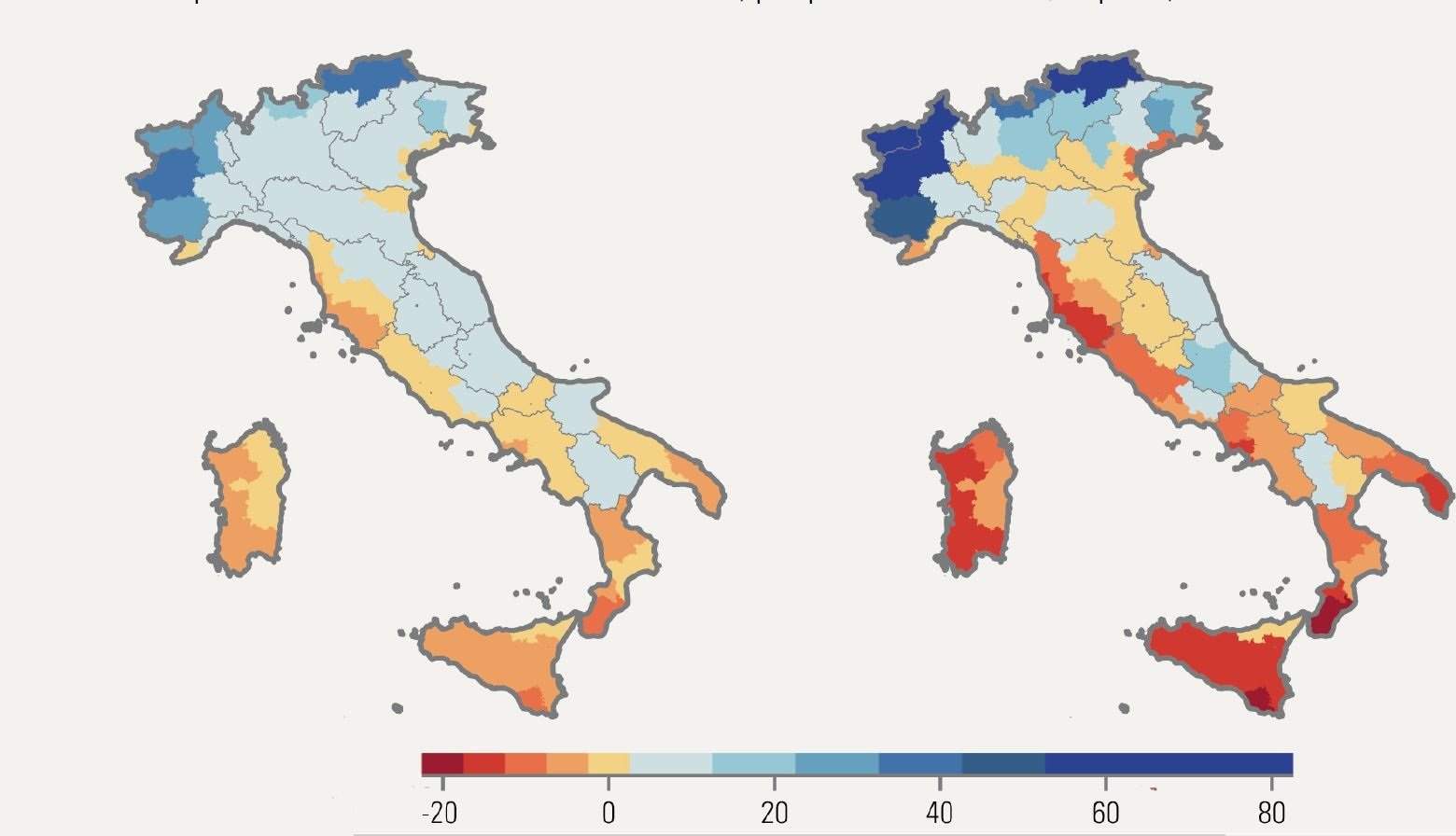
GDP loss of over 8%, regional inequalities doubled: revised estimate for economic impacts of climate change in Italy, they include slowing growth, and increasing economic inequalities. The new study by researchers from the CMCC Foundation – Euro-Mediterranean Center on Climate Change is part of the Report on the State of the Green Economy 2019.
The Italian economy will be affected by climate change seven times more than expected in previous estimates. This is what emerges from the report “The economic impacts of climate change in Italy”, that was presented today in Rimini at the 8th edition of the States General of the Green Economy.
The study, part of the Report on the State of the Green Economy 2019, investigates the economic consequences of a changing climate with a focus on the Italian territory, providing updated estimates based on the analysis of thousands of high-resolution observations to a review of the most recent scientific studies. Authors of the report are Massimo Tavoni, Francesco Bosello, of the CMCC Foundation and co-directors of RFF-CMCC European Institute on Economics and the Environment and Shouro Dasgupta, a researcher at CMCC@Ca’Foscari.
“The most innovative part of our study concerns new estimates of the impacts of climate change on the economy and inequality in Italy”, explains Massimo Tavoni, Professor at Politecnico di Milano. “According to our new estimates, the expected economic impacts for the second part of the century reach 8,5% of GDP loss in Italy. These estimates are much higher than those provided by the existing literature, which were at most 1 or 2% of GDP loss”.
The climate of the future will not only slow down growth but will also increase economic inequalities. “Impacts will be more severe in Southern Italy”, continues Tavoni, who will comment on the report during the international plenary session of the States General tomorrow, November 6, “further exacerbating the already existing Italian North–South economic divide: inequalities are expected to increase by 16% in 2050 and 61% in 2080”.

Impacts of the rising temperature on the economic performance (% per capita GDP variations compared to current climate conditions) by Italian province, Rcp8.5 (2050 left – 2080 right). Source: Report on the State of the Green Economy 2019, p. 26
Estimates are based on an innovative methodology in the field of economic data analysis on climate change, applied for the first time to the Italian case: “The possibility to use socio-economic data at the grid level for macroeconomic analysis – that is for the analysis of aggregate economic performance indicators, such as the GDP – is recent,” underlines Francesco Bosello, Director of the Economic Analysis of Climate Impacts and Policy Division at CMCC Foundation and Professor of economics at Statale University of Milan. “This allows for a much more detailed spatial resolution, in the order of 100, 50 or even 10 square kilometres as in this study, rather than referring to national averages. By combining economic data with climate data, both at a high spatial resolution, we can investigate the historical relation between temperature and economic growth at the geographical grid-cell level, and then use climatological forecasts to predict the economic impacts in the same areas in the future.”
“We calculated that the optimal temperature for the country’s economy that maximizes Italian economic performance, is 11.5 °C,” says Shouro Dasgupta, researcher at the Economic Analysis of Climate Impacts and Policy Division of the CMCC Foundation. “However, if we look at the map of Italy, we see that the temperature is rather different between the North and the South of the country. As of today, in some regions the average temperature already exceeds the optimum condition, already resulting in a reduction in economic growth because of climate change impacts”. As a result, future warming will continue to exert negative impacts on these regions.
The report also analyses the state of knowledge on the impacts of climate change in Italy in specific sectors, from tourism to health, from agriculture to hydrogeological instability, including the works of the National Climate Change Adaptation Plan, which saw the contribution of the CMCC Foundation.
The Report on the State of the Green Economy – 2019 was presented by the former Minister of Environment Edo Ronchi, President of the Sustainable Development Foundation, at the opening plenary session of the States General of the Green Economy. The event, which focuses on formulating ideas and proposals to support and strengthen towards a Green New Deal for Italy towards 2030, is hosted at the Fiera di Rimini during Ecomondo on November 5 and 6 and is organized by the National Council of the Green Economy in collaboration with the Ministry of Environment, the Ministry of Economic Development and the European Commission.
CMCC Foundation further contributes to Ecomondo with the event “Il futuro dell’acqua. Sviluppo, innovazione, tecnologia, sostenibilità. Un dialogo tra scienza, imprese e pubblica amministrazione” on November 7, 2019 at 10 am, organized in collaboration with Climate Kic and held in Italian language.
Link to the “Report on the State of the Green Economy – 2019”
Link to the website of the 2019 States General of the Green Economy


